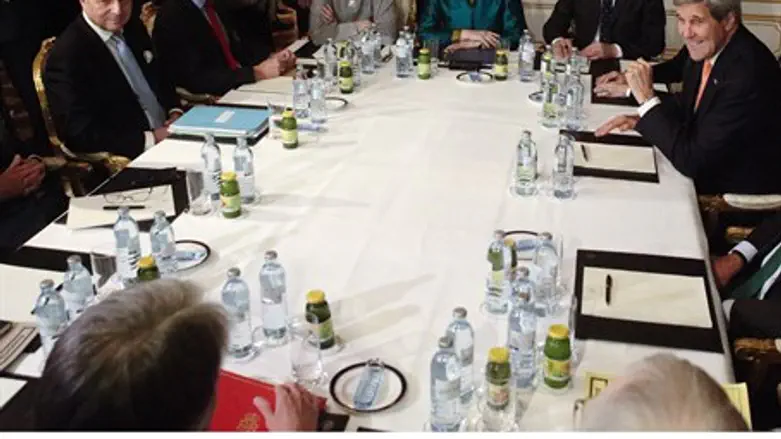
Iran and six powers are still apart on all main elements of a nuclear deal and will likely have to extend their negotiations beyond the June 30 deadline, two diplomats told The Associated Press (AP) on Wednesday.
Negotiators have been meeting five days a week in Vienna over the past few weeks. The two diplomats who spoke to the news agency are familiar with the progress of the talks and spoke shortly before a planned five-day round reconvened Wednesday. They demanded anonymity because they are not authorized to discuss the confidential negotiations.
Ways of implementing specific parts of the deal are supposed to be contained in four or five annexes to the main text of an agreement.
The diplomats described the draft of a main document as a patchwork of text and dozens of blank spaces because of stubborn disagreement on up to 10 elements crucial to any deal. Those details are to be included in four or five annexes, which remain incomplete.
While both sides remain publicly committed to June 30, the diplomats said all nations at the table recognize that a delay up to July 9 is not a deal-breaker.
The comments are in line with ones made by a diplomat who spoke with a Russian news agency last Friday and said the talks are “virtually stalled”.
Speaking after the latest round of discussions in Vienna, the diplomat said talks had made no significant progress and added, “The process has virtually stalled, there is a risk that the deadline will have to be postponed again.”
Russia later expressed concern over the "very worrying" slowdown in progress in the nuclear talks.
"The rate of progress... is progressively slowing down," Russia’s chief negotiator, Sergei Ryabkov, said. "This is very worrying to us because there is very little time before the deadline and we urgently need to enter the final stage.”
Among the unresolved issues are the pace of easing Western sanctions imposed over the Iranian program and the monitoring and verification measures to ensure Iran could not pursue a clandestine nuclear weapons program.
Iran has categorically deniedreports that it would allow inspectors into its sites as part of a final deal, describing them as mere rumors and as wrong interpretations of the understanding reached in early April.
Iran’s Deputy Chief of Staff recently reiteratedthat the Islamic Republic will not allow any inspection of its military sites, calling the demand to do so “excessive”.
